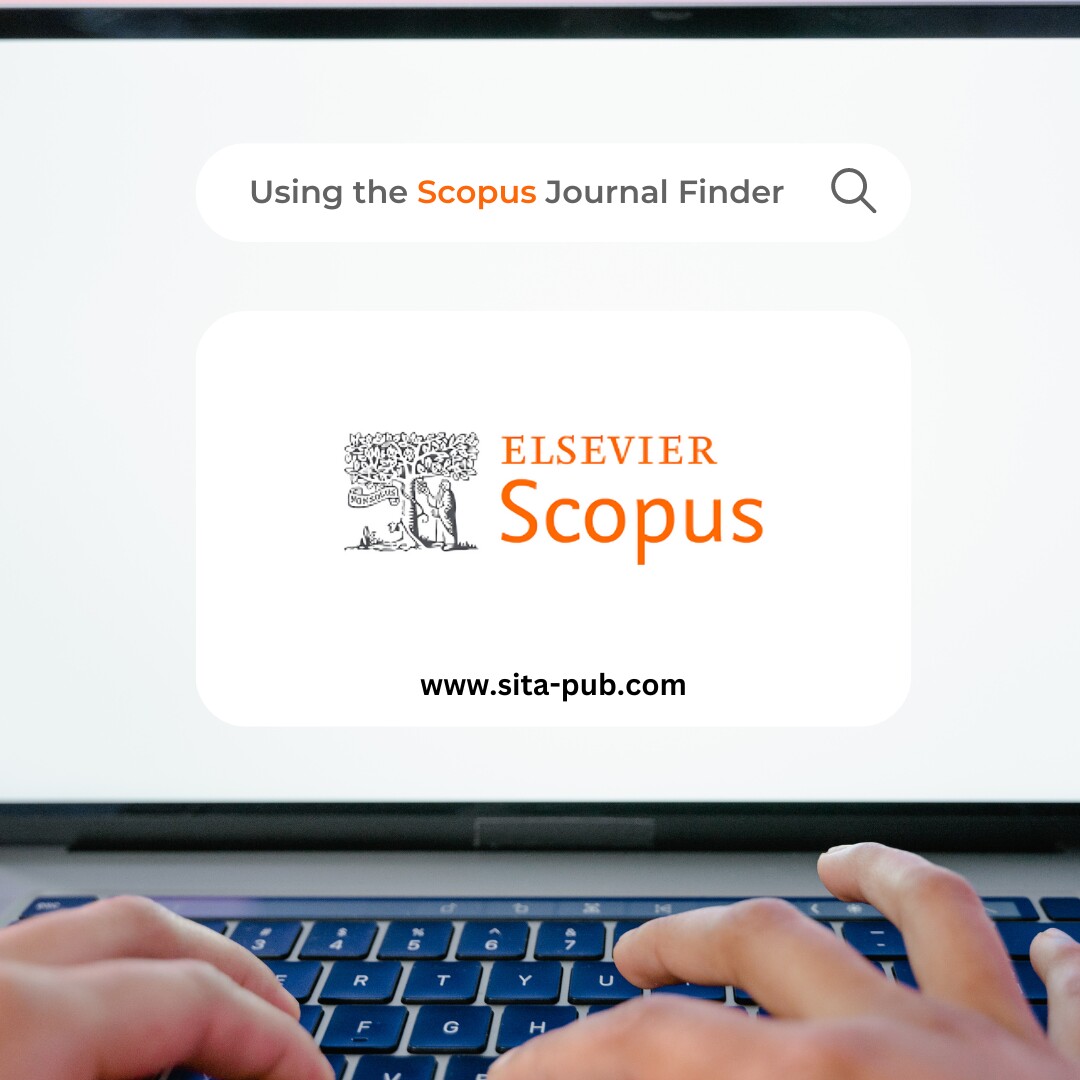Using the Scopus Journal Finder


Publishing research in reputable journals is an important achievement for any academic or researcher. However, choosing the right journal can be challenging. Scopus is a large database that helps researchers find suitable journals for their work. One of its helpful features is the Scopus Journal Finder Tool. In this guide, we will explain the fields Scopus covers, the importance of selecting the right journal, and provide a simple step-by-step guide on how to use the Journal Finder.

Scopus includes many different areas of research, making it useful for a wide range of scholars. Here are some of the main fields published by Scopus:
Life Sciences: This includes topics like biology, medicine, and genetics. Journals in this area publish studies on living organisms and health-related issues.
Physical Sciences: This covers subjects such as chemistry, physics, and earth sciences. Journals here publish research about matter, energy, and the natural world.
Social Sciences: Scopus includes journals that focus on psychology, sociology, and economics, exploring human behavior and society.
Health Sciences: This area covers nursing, public health, and pharmacy, promoting research that can improve healthcare practices.
Engineering: Scopus features journals in fields like computer science and civil engineering, supporting new technology and infrastructure development.
Arts and Humanities: This includes literature, history, and philosophy, allowing researchers to publish work about culture and human thought.
With such a wide range of topics, Scopus helps researchers find the right journals for their studies.

Choosing the right journal is a crucial step in the publication process. Here are some reasons why this choice matters:
Matching Your Research: Every journal has a specific focus and audience. Submitting to a journal that matches your work increases the chances that it will be accepted.
Visibility of Your Research: Publishing in the right journal helps your research reach the right readers. This visibility can lead to more citations and recognition in your field.
Impact Factor: The impact factor is a measure of how often articles from a journal are cited. Publishing in a journal with a high impact factor can improve your academic reputation.
Understanding Submission Guidelines: Different journals have different rules for submissions. Knowing and following these rules can save you time and prevent rejection.
Networking Opportunities: Publishing in respected journals can help you connect with other researchers and open doors for future collaborations.
By selecting a suitable journal, you improve your chances of getting accepted and enhance the impact of your research.
The Scopus Journal Finder Tool is easy to use. Here’s how to find the right journal for your manuscript:
Start by visiting the Scopus website. You may need to create an account or log in. Look for the Journal Finder tool on the site.
In the Journal Finder, you will need to enter details about your manuscript. Provide the title, abstract (a short summary), and keywords (important words related to your study). This information helps the tool suggest suitable journals.
After entering your manuscript details, use the filters to narrow your search. You can choose options like:
Subject Area: Select the research category that fits your work.
Publication Type: Decide if you want open access (freely available) or subscription-based journals.
Language: Specify the language of publication, if needed.
Once you submit your details, the tool will show you a list of recommended journals. Look through these suggestions carefully. Check their focus, audience, publication frequency, and impact factor.
Click on each journal title to find more information. Review the journal's submission guidelines and editorial board. This step helps you decide which journal is the best fit for your research.
If you find several suitable journals, consider saving them for later comparison. This will help you make an informed decision.

Yes, the Scopus Journal Finder tool allows you to filter your search results to find journals that do not charge article processing fees (APCs). This feature is very helpful for researchers who may not have funding for publication costs. By selecting this option, you can find quality journals that won’t add extra expenses.
After you have found a suitable journal, follow these important steps:
Carefully read the journal's author guidelines. Format your manuscript according to their requirements. Each journal has specific rules about layout, citation style, and how to present your work. Following these guidelines is essential, as not doing so can lead to rejection.
Once your paper is formatted correctly, proceed with the submission. Most journals use online systems for submissions. Create an account if necessary, and follow the instructions to upload your manuscript and any additional documents. Make sure to include all required items and double-check for any mistakes.
After submitting, keep track of the status of your manuscript through the journal’s submission portal. Be prepared for possible revisions based on feedback from reviewers, and stay engaged throughout the review process.
Using the Scopus Journal Finder Tool can make your publication journey smoother. By understanding the fields Scopus covers, the importance of choosing the right journal, and following the steps to find a suitable one, you can increase your chances of acceptance. Remember to format your paper according to the journal's guidelines and submit it promptly. With careful planning and execution, you can successfully publish your research and share your findings with the academic community.
If you couldn’t find the right journal or if you've identified one but need assistance with formatting and submission, contact SITA Academy today! Our expert team is here to help you maximize your chances of acceptance to your target journal. Don’t leave your publication success to chance—reach out to us and let’s make your research shine!

If you have any questions, inquiries, or would like to learn more about our services, please don't hesitate to reach out to us. Our dedicated team is ready to assist you.